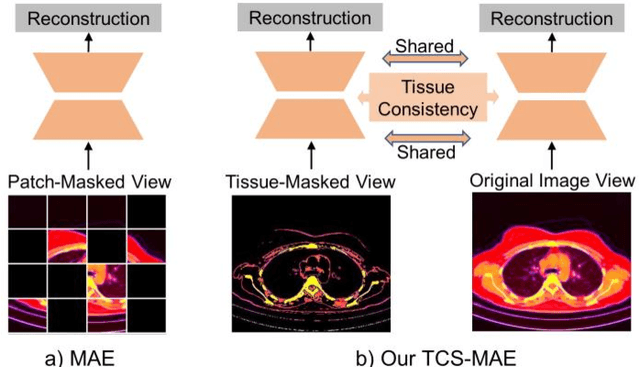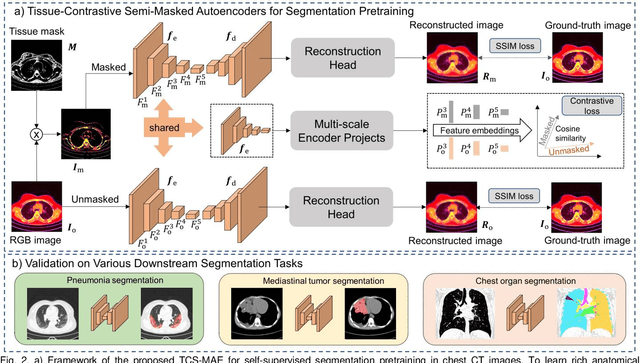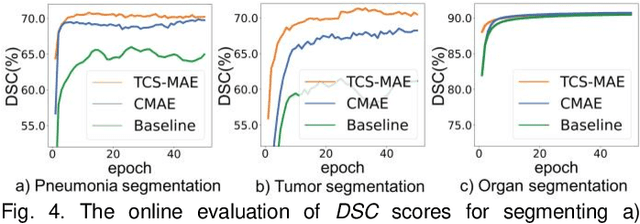Tissue-Contrastive Semi-Masked Autoencoders for Segmentation Pretraining on Chest CT
Paper and Code
Jul 12, 2024



Existing Masked Image Modeling (MIM) depends on a spatial patch-based masking-reconstruction strategy to perceive objects'features from unlabeled images, which may face two limitations when applied to chest CT: 1) inefficient feature learning due to complex anatomical details presented in CT images, and 2) suboptimal knowledge transfer owing to input disparity between upstream and downstream models. To address these issues, we propose a new MIM method named Tissue-Contrastive Semi-Masked Autoencoder (TCS-MAE) for modeling chest CT images. Our method has two novel designs: 1) a tissue-based masking-reconstruction strategy to capture more fine-grained anatomical features, and 2) a dual-AE architecture with contrastive learning between the masked and original image views to bridge the gap of the upstream and downstream models. To validate our method, we systematically investigate representative contrastive, generative, and hybrid self-supervised learning methods on top of tasks involving segmenting pneumonia, mediastinal tumors, and various organs. The results demonstrate that, compared to existing methods, our TCS-MAE more effectively learns tissue-aware representations, thereby significantly enhancing segmentation performance across all tasks.
 Add to Chrome
Add to Chrome Add to Firefox
Add to Firefox Add to Edge
Add to Edge